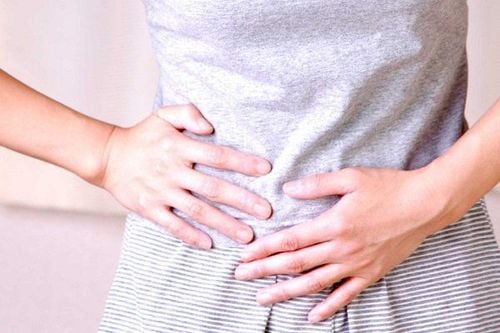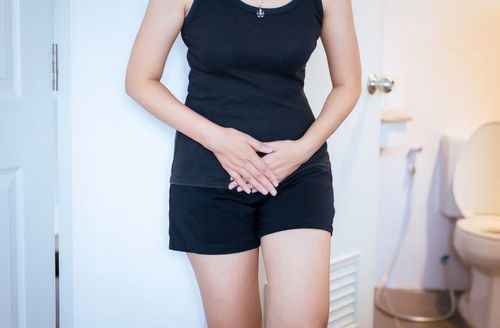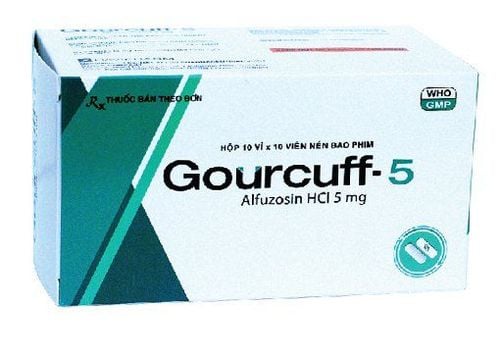This is an automatically translated article.
The article is professionally consulted by Master, Doctor Vo Thien Ngon - Department of General Surgery - Vinmec Danang International General Hospital.
Cystitis is a common disease in women, almost everyone has experienced it at least once in their life. In many people, this condition often recurs, greatly affecting the patient's quality of life.
1.Why do women often get cystitis?
Cystitis, also known as bladder infection, is an acute urinary tract infection caused by bacteria in the bladder. In some cases, the condition can recur over a long period of time. Cystitis can also be caused by certain medications, radiation therapy, or as a complication of another medical condition.
Acute cystitis is a common disease, especially in women. Statistics show that women of childbearing age have at least one episode of acute cystitis. Once infected, the risk of relapse or re-infection is often very high. Women are more susceptible to cystitis than men because the female urethra is very short, so bacteria around the perineal area easily penetrate the bladder. Men are less likely to get cystitis and once infected, it is often caused by a urinary tract malformation, urinary tract obstruction due to stones or an enlarged prostate gland.
Almost all women know at one time in their life symptoms such as a constant need to urinate, burning when passing, and pain in the lower abdomen. Bladder infections (or cystitis) are easy to treat, but can be very difficult to treat if not detected early and cause complications.
Among the many reasons for urinary tract infections, the main reason is the complex structure of the female reproductive organs. The urethra - the female urinary tract is short, so pathogens in the anal area often travel easily to the bladder.
Another cause of cystitis in women is the habit of drinking less water, which makes it difficult to push the pathogens out. The risk of cystitis usually increases in the summer, especially in hot countries, when people sweat a lot and urinate less.
You should also be very careful with birth control pills because this is also one of the causes of cystitis. Oral contraceptives, when performing their duties, will cause side effects that are hindering excretion; on the other hand, also change the bacterial flora in the genital organs.
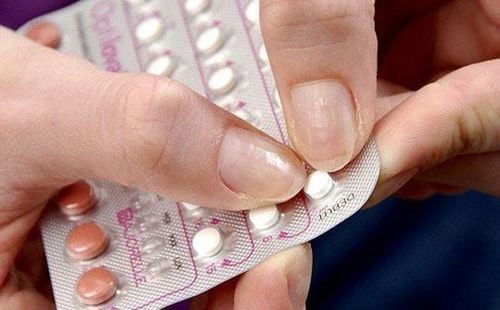
Poor hygiene also causes bacteria to multiply quickly. Women need to pay special attention to this during menstruation. Less changing tampons also easily leads to infection. On the contrary, doing too much cleaning is not necessarily good.
Many women suffer from an unprovoked fear of bacteria, so they regularly use antibacterial agents or do not know how to use hygiene products appropriately. It is this hard work that inadvertently kills non-dangerous species of bacteria and can prevent harmful bacteria species in the 'closed'; The risk of urinary tract infection is therefore increased.
There is a thing called local microbial balance. Just like in nature, killing one species (in this case, bacteria) will create conditions for other species to grow and reproduce. Using a shower directly into the vagina will unbalance the bacterial flora, which is also the source of the disease.
Factors that cause urinary retention in the bladder, especially constipation, also increase the risk of infection. Certain medical conditions also increase the risk of urinary tract infections due to urinary retention; whether it's diabetes, polio or neurological diseases.
Some types of cystitis also depend on your sex life and hormone changes. In women, this particular disease occurs during pregnancy or menopause, as this is the period of the most dramatic hormonal changes.
Finally, a less-noticed cause of cystitis is dressing. Wearing clothes that are too tight can increase body temperature, stimulate sweat secretion, and moisten the intimate area, creating conditions for bacteria to reside and grow.
2. The times when cystitis is easy
Beginning of sex life: A tear in the hymen can cause cystitis after sex. Fragments of the hymen adhere to the vaginal wall, facilitating the passage of pathogens to the bladder. This is the cystitis of the honeymoon, which sometimes lasts until the baby is born. During pregnancy: 10% of women may develop a urinary tract infection during this time. It is due to the development of the fetus leading to stagnant urine. Postpartum: Genital lacerations reduce the distance between the anus and female genitalia, making it easier for pathogens to enter. Stitching will solve this problem. Menopause: The cessation of sex hormone secretion leads to narrowing and dryness of the vagina, making the mucous membranes fragile, along with poor resistance, which makes it easy for bacteria to attack.
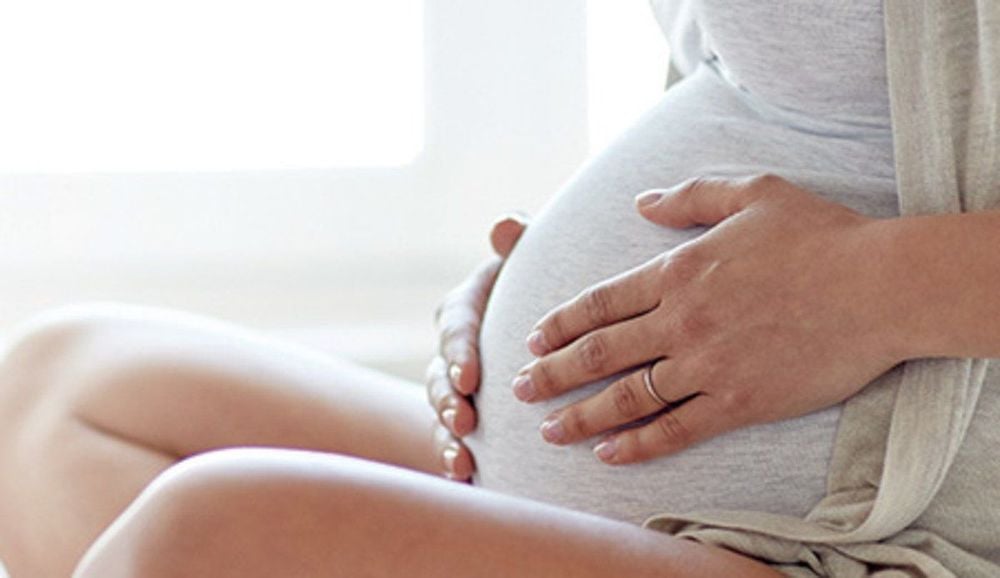
3. Principles of intimate hygiene
Failure to maintain good hygiene can facilitate bacterial growth, especially during menstruation. Therefore, wearing tampons, tampons for too long or washing the genital area less will easily cause infection, but cleaning too carefully is also harmful.
Use of inappropriate cleaning solutions can cause mechanical or chemical damage to the mucosa of the genital organs. The microflora of the vagina and vulva is a very fragile ecosystem, which can be imbalanced due to too deep washing or the use of irritating washing solutions, and as such, the natural protective barrier is weakened, allowing bacteria to grow. development harm.
Pants and underwear that are too tight and do not absorb well also increase local heat and humidity, further facilitating infection.
4. Some notes to prevent cystitis
In order for women's health not to be impaired because of this easy-to-prevent and not difficult-to-treat disease, urologists recommend that:
Drink enough water. Drink 1.5-2 liters of water per day. Drinking enough of this water helps the body excrete well to avoid stagnation of urine in the bladder and urine is a way to push bacteria out to limit inflammation. Do not hold urine. Try to urinate regularly and do not hold your urine for long. This also causes urinary retention in the bladder. Urinate right after sex. If you feel the pain of cystitis right after sex, you should urinate right away because urine will help expel harmful bacteria that are residing in the urethra. Avoid getting wet or raising body temperature. Avoid wearing clothes that are too tight as this will stimulate perspiration. Use the correct operations. After urinating or defecating, you should wash with water but do it from front to back to avoid doing the opposite. Also remember to always wash your hands with soap. Treatment of constipation. If you often suffer from constipation, pay attention to the balance of your diet, you should combine eating lots of green vegetables, fruits, and fiber. Try to eat on time and have an exercise regimen. Constipation causes stagnation of stool in the large intestine which also creates conditions for bacteria to multiply. Not too hygienic. Limit hygiene inside the genitals. You should only do it 1-2 times a day. Use cleaning products with a suitable pH (5-7), do not use antibacterial products. Pay attention to hygiene during menstruation. During this time, it is advisable to change the tampon regularly. When sick, do not self-treat. You must use the medicine exactly as directed by your doctor because otherwise the bacteria will become resistant to the drug and your disease will reappear. Take your partner to the doctor to check and analyze the urine, because inflammation can appear during sex. If urinalysis shows the presence of a sexually transmitted infection, both of you should be treated immediately. As mentioned above, because the specific structure of the female urinary tract is very short, they are very susceptible to cystitis. Although the disease can be easily treated with antibiotics, women often feel uncomfortable when infected. Therefore, the prevention of cystitis is necessary, although simple but certainly effective.
At Vinmec International General Hospital, there is a urological screening package with many utilities, including: Early detection of possible urinary diseases, thereby helping customers take preventive measures prevention.
When registering for the urological screening package, customers will be examined by a urologist, ultrasound, urine culture... to detect the disease accurately and promptly.
Doctor Vo Thien Ngon has over 7 years of experience working as a urologist and surgeon at Hospitals: Hue Central Hospital, Hue University of Medicine and Pharmacy Hospital, Tam Tri Da Nang General Hospital .
Doctor Ngon with the ability to specialize in the field of examination and treatment of diseases of the Urology and Andrology system, Urology surgery, endoscopic urological surgery, Laparo urinary tract surgery, endoscopy Urinary. Currently, Dr. Vo Thien Ngon is a Urology - Orthopedic Surgery Doctor, Department of General Surgery, Vinmec Da Nang International Hospital
Please dial HOTLINE for more information or register for an appointment HERE. Download MyVinmec app to make appointments faster and to manage your bookings easily.





